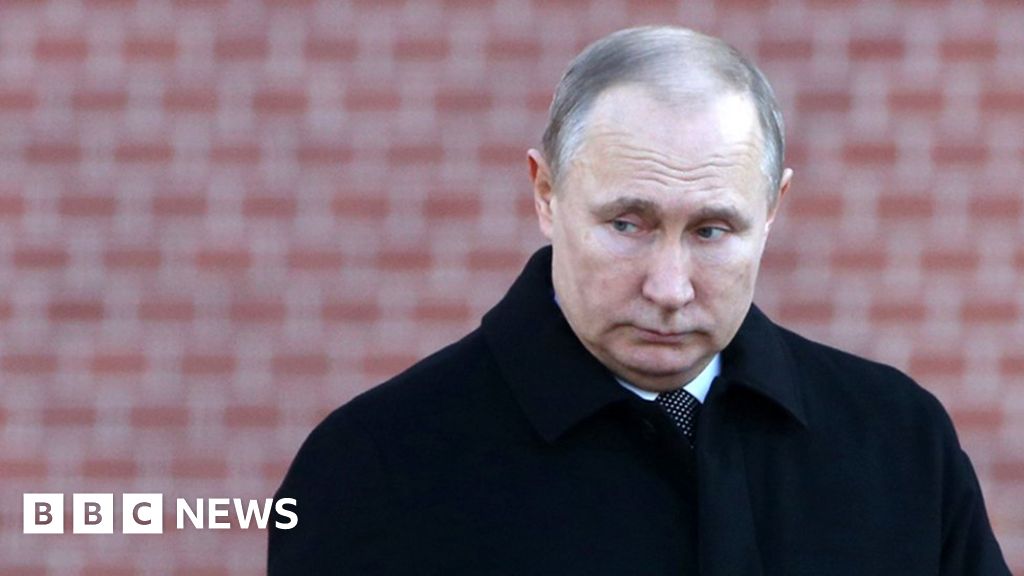What is a war crime, and could Putin be prosecuted over Ukraine?
By Dominic Casciani
Legal correspondent, BBC News
Ukrainian President Volodymyr Zelensky has described an attack on a maternity and children’s hospital as a “war crime”.
It may not seem like it, but “even war has rules”, as the International Committee of the Red Cross puts it.
What is a war crime?
Civilians cannot be deliberately attacked – nor can the infrastructure that is vital to their survival.
Some weapons are banned because of the indiscriminate or appalling suffering they cause – such as anti-personnel landmines and chemical or biological weapons.
The sick and wounded must be cared for – including injured soldiers, who have rights as prisoners of war.
Other laws prohibit torture and genocide – the deliberate attempt to destroy a specific group of people.
Serious offences during war such as murder, rape or mass persecution of a group, are known as “crimes against humanity”.
What allegations of war crimes have there been in Ukraine?
There have also been reports that Russian troops have targeted fleeing Ukrainian civilians.
Areas of Kharkiv have been heavily damaged by missile and rocket attacks
Neither Russia nor Ukraine have signed up to a worldwide ban on their use, but these incidents could still be considered a war crime.
Many experts argue the invasion itself is a crime under the concept of aggressive warfare – more on that below.
How are suspected war criminals pursued?
Each country has a duty to investigate suspected war crimes.
Some nations do so more than others.
In the UK, senior police officers have offered to help gather evidence of potential crimes in Ukraine.
How can suspected war criminals be prosecuted?
Théoneste Bagosora died while serving a 35-year sentence for his role in the 1994 Rwandan genocide
Today, the International Criminal Court (ICC) and the International Court of Justice (ICJ) have roles upholding the rules of war.
The International Court of Justice
The ICJ rules on disputes between states, but cannot prosecute individuals. Ukraine has begun a case there against Russia over the invasion.
But Russia – one of five permanent members of the UNSC – could veto any proposal to sanction it.
The International Criminal Court
Nazi war criminals at the Nuremberg trials included Hermann Goring, Rudolf Hess and Joachim von Ribbentrop
Nuremberg cemented the principle that states could agree to set up a special court to uphold international law.
Can the ICC prosecute offences in Ukraine?
If there’s evidence against individuals, the prosecutor will ask ICC judges to issue arrest warrants to bring them to trial – which would be held in The Hague.
This is where the practical limitations on the court’s power become apparent.
The court doesn’t have its own police force. It relies on states to arrest suspects.
But Russia is not a member of the court – it pulled out in 2016. President Putin won’t extradite any suspects.
If a suspect went to another country, they could be arrested – but that’s a very big if.
Could President Putin or other leaders be prosecuted?
It’s far easier to pin a war crime on a soldier who commits it, than the leaders who ordered them to shoot.
But the ICC can also prosecute the offence of “waging aggressive war”.
This is the crime of an unjustified invasion or conflict, beyond justifiable military action in self-defence.
It originated at Nuremberg, after the judge sent by Moscow convinced the Allies that the Nazis leaders should face justice for “crimes against peace”.
Here’s the problem: Professor Philippe Sands QC, an expert on international law at University College London, says the ICC couldn’t prosecute Russia’s leaders for this offence because the country isn’t a signatory to the court.
In theory, the UN Security Council could ask the ICC to investigate this offence. But again, Russia could veto this as one of the council’s five permanent members.
So is there any any other way to prosecute individuals?
The effectiveness of the ICC – and the way international law plays out in practice – depend not just on treaties, but politics and diplomacy.
And Prof Sands and many other experts argue that like Nuremberg, the solution lies once more in diplomacy and international agreement.
For all the latest world News Click Here

